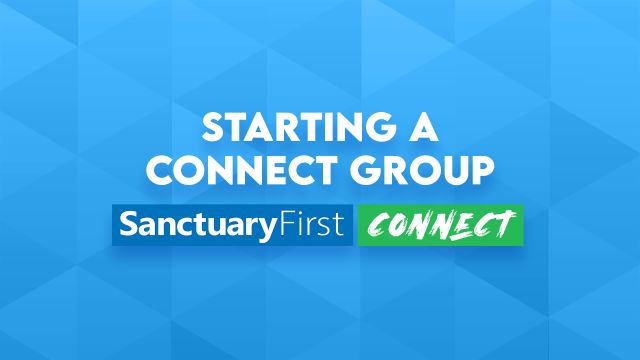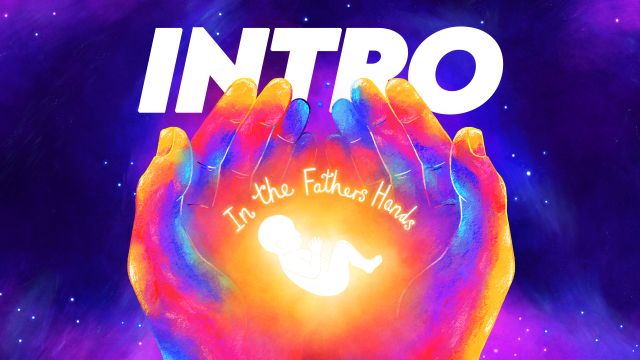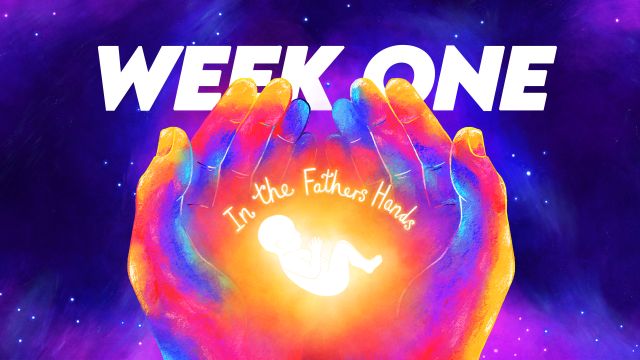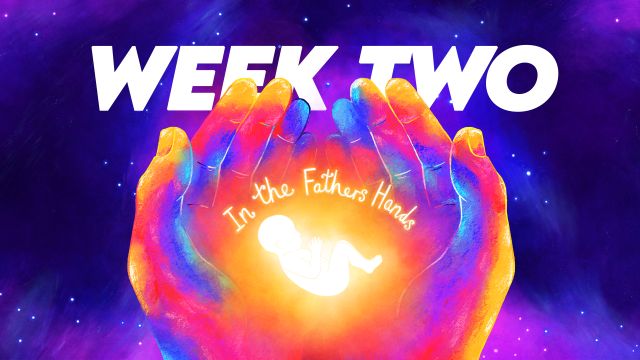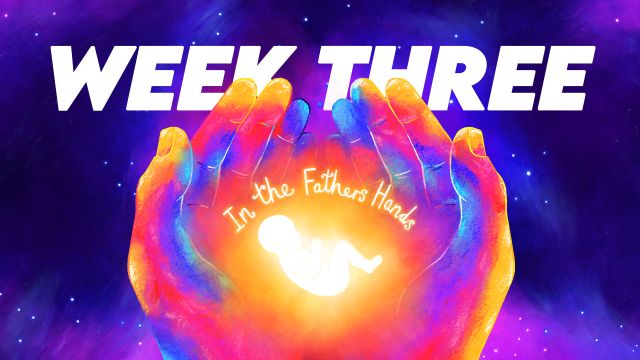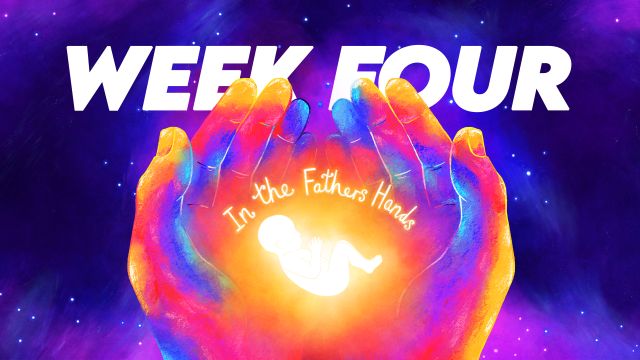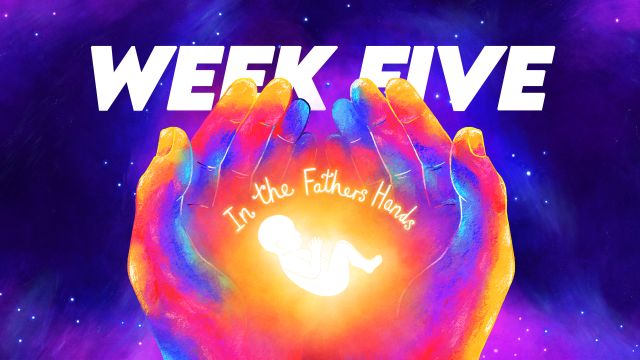In the Father’s Hands - Connect Groups
What Are Connect Groups?
What are Connect Groups?
‘Connect Groups’ is the name we give to small informal gatherings who decide to meet together to explore the Bible alongside our monthly themes. These groups are independent and folk can simply set up their own Connect Group themselves, meeting together with friends and family on their own basis. In this time of Lockdowns when people can’t get together physically this material can still be used to meet together online.
Each month we produce a range of questions to adapt our themes for group discussion. The material is offered as a starting point and there is no need to go through all the questions.You can pick and choose, tailoring it to suit the needs and interests of your group. Each ‘Part’ could form the basis of a weekly roughly 90 minute meeting but you could break it up differently. Let us know if you would like to find out more about Connect Groups and different ways of linking into the Sanctuary First community.
We all come to the Bible with our own questions, insights and barriers. The guiding principle we have in writing these is to ask questions we don’t already know the answer to! Our hope is to facilitate open-ended discussions. Often the most valuable parts of group chats are the bits that go off on bizarre tangents. And there’s nothing wrong with that. Jesus knows a thing or two about bizarre tangents…
Need some advice on starting your own Connect Group?
Get in touch.
Introduction
Introduction
 In the Father’s hands! Sometimes people say flippantly or fatalistically ‘well it’s in God’s hands now’ — as in ‘there’s nothing more we can do’. But when we reflect on the fact that we live and breathe in the shelter of God’s the Father’s hands — there’s so much we can do!
In the Father’s hands! Sometimes people say flippantly or fatalistically ‘well it’s in God’s hands now’ — as in ‘there’s nothing more we can do’. But when we reflect on the fact that we live and breathe in the shelter of God’s the Father’s hands — there’s so much we can do!
This month we conclude our three month series looking at the Trinity by reflecting on our Father God. Wild Jesus regularly talks about and prays to His Father knowing that His Father loves Him and shows Him all He does (John 5: 20). One of the sparks the Spirit gives us is that we cry out ‘Abba, dear father’ (Romans 8: 15). We keep in mind that God the Father is one of heavenly understanding and not an earthly understanding.
We are reflecting on the care, creativity and generosity of our heavenly Father, who loves us dearly who empowers, encourages and energises us, side by side with Wild Jesus.
So, what are Father God’s hands like? What does it mean to be in His hands? Hands that are safe. That are open. That are skilled. That are creative. That are ever resourceful. Hands that know how to sensitively sculpt, weave, cultivate, and nurture. Hands that are both powerful and gentle, unimaginably big and yet able to hold us close.
To help us picture the Father’s hands we are going to be looking at a series of metaphors for the skilled craftsmanship of our loving Father God. In a world that knows only too well the pain of absent fathers we are comforted by the presence of our God — who has all the presence of the gifted artist lovingly crafting his art. We are beautiful dishes, a rich tapestry, a vibrant garden, and an endless canvass of God’s grace.
SEEDS TO SOW: We have a 'Seeds to Sow' phrase at the beginning of each section. These are open-ended and optional and are designed for people wanting to develop their own ideas/resources in response to the material. Perhaps if using this material as a group you could use these prompts to inspire a time of prayer, or drawing, or creative writing? They are intended to be short and sweet, simply a starting off place for you and your imagination, be encouraged to tailor/develop as suits your group.
Download the Discussion Questions as a PDF
These discussion questions adapt our monthly theme for small Connect Groups or personal Bible study. The questions are divided into 5 parts to correspond with the 5 weeks of the Daily Worship theme. They are offered as a guideline and there is no need to go through all the given questions in a single session, or in the following sequence. Feel free to pick and choose, or adapt to what interests you or your group.
Find how to get involved: Connect group Blog
Week One
The Potter’s Hands
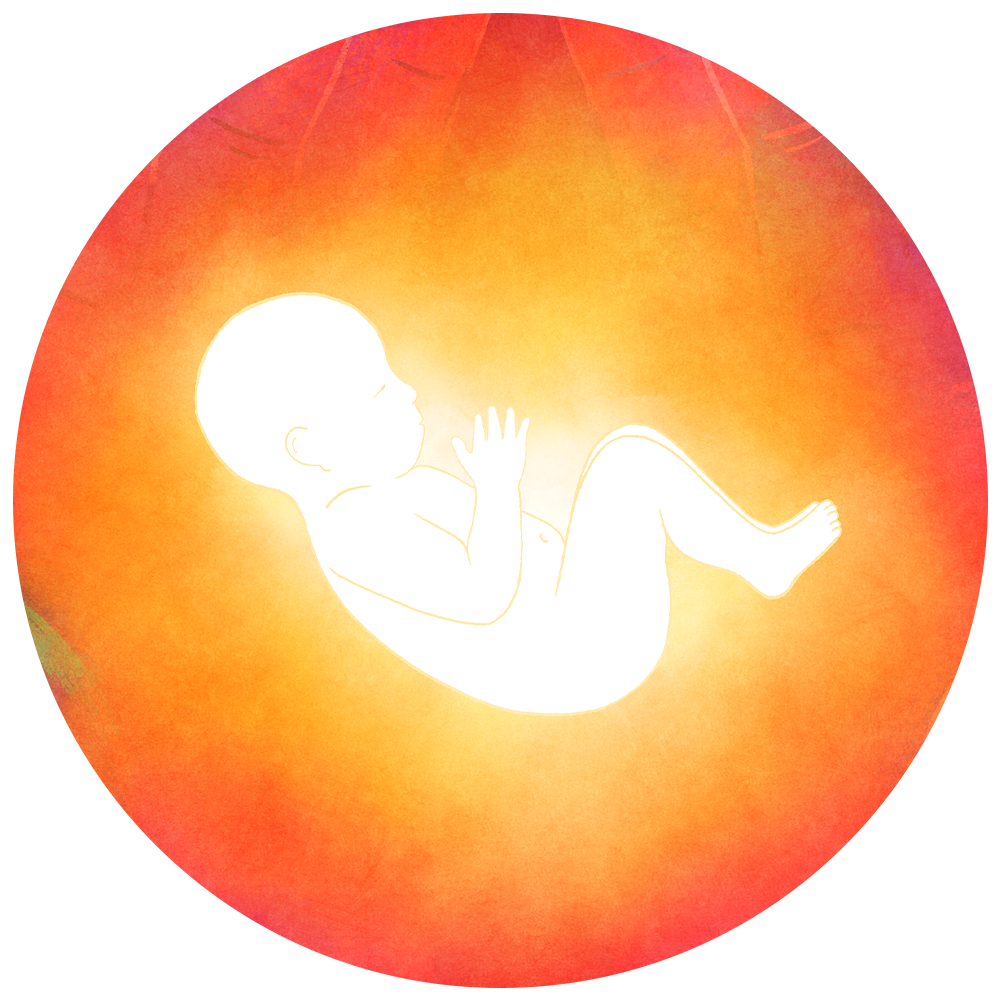 The Father’s Goodness
The Father’s Goodness
We begin our theme by picturing our Father God as a potter! This is an ancient metaphor inspired by an ancient art form that occurs multiple times in the Bible.
This week we are thinking especially about the goodness of God. We will be reflecting on the thoroughness and sensitivity of God’s hand’s on care.
Seeds to sow: As well as their hands, potters use a number of tools to shape and decorate their pots as they work the clay. One thing they use is a ‘sprig mould’ kind of like a stamp which can be pressed into the clay to create textures and designs. If God had a ‘sprig mould’ in your community, what designs and patterns would he be pressing into the clay?
Read Isaiah 64 (especially focusing on verse 8)
Wedging the clay
We need God and God kneads us! ‘Wedging’ is when potters work the clay to make it workable, consistent, and pliable. A potter doesn’t simply grab a lump of clay and immediately start sculpting — in the same way God doesn’t just grab us and bend us out of shape — God knows us and kneads us, supporting and strengthening us. Let’s use this imagery to think about the sensitivity and goodness of God the Father.
The flash of insight in verse 8 — that we are all the works of God’s hands, bearing the maker’s mark — comes in the midst of this heartfelt plea to God to intervene, to be present! What can we do when we are desperate for our Father God to act or intervene in a situation but he is instead wedging the clay — working in unseen ways to prepare and nurture us?
Read Jeremiah 18: 1-11
Moulding the clay.
Let’s use this pottery analogy to think about the power behind God’s goodness.
The words at the end of this reading seem somewhat drastic at first reading, “Thus says the Lord: Look, I am a potter shaping evil against you and devising a plan against you. Turn now, all of you from your evil way, and amend your ways and your doings.”
But are we missing a comic undertone here? God is not a literal potter, and God does not shape evil against us. And while a potter might get frustrated with their clay that doesn’t mean they’re going to take it out on the clay itself, instead they’ll go back to square one and begin moulding the rebellious clay again (see verse 4). Where do you see God working and reworking our potential, as communities, societies and nations?
Read 2 Corinthians 4: 1-15
First firing
When pottery goes into the kiln the questions come — will it hold? Will cracks appear? Clay makes a great metaphor for humanity — delicate and earthy, everyday and beautiful. God the Father loves us, has a purpose for us and can use all the broken pieces of our lives! Cracks are how the light gets in as Leonard Cohen said! Our imperfect clay forms can be beautiful vessels of grace, not in spite of being humble clay jars, but because of it! Kintisugi is the Japanese practice of mending cracks in broken pottery with gold — not erasing the break but healing it and making it beautiful.
Where are we asking for our Father God to work gold Kintisugi in our lives?
Week Two
The Weaver’s Hands
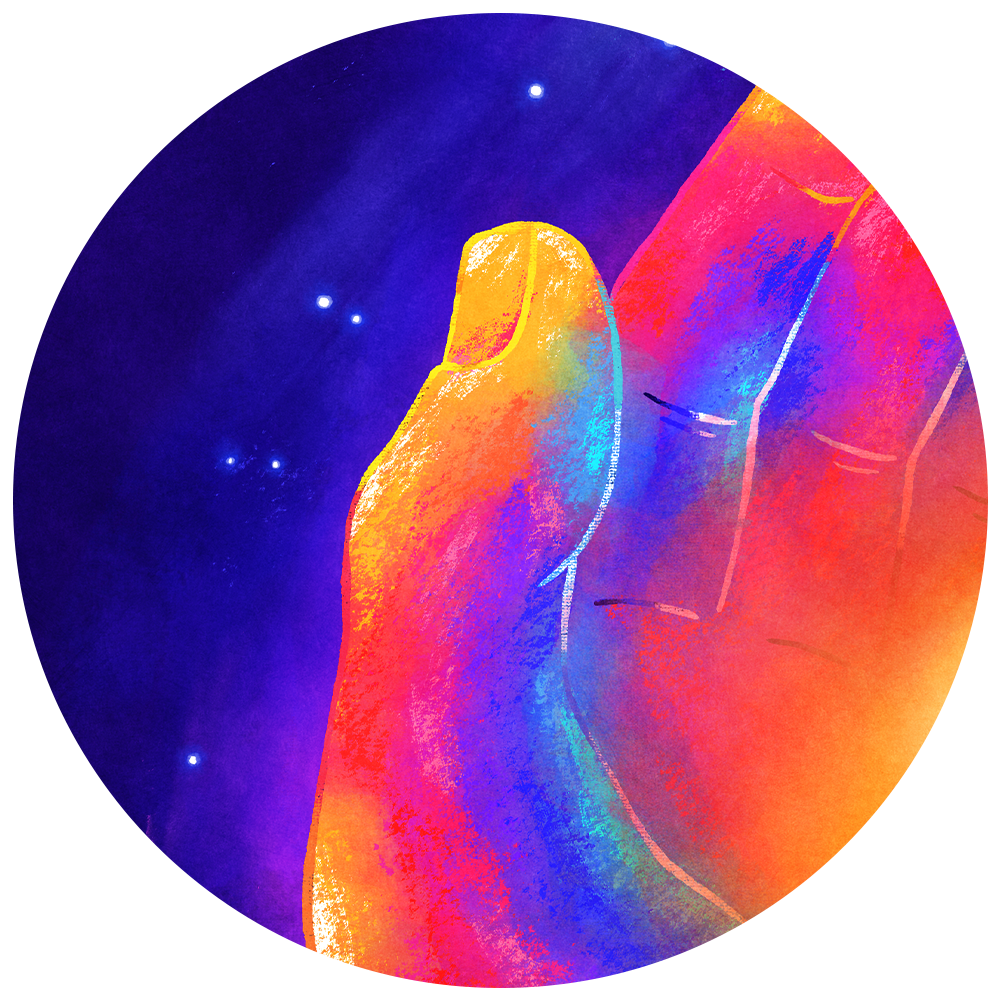 The Father’s Vision
The Father’s Vision
Our Father God is handy on the loom as well as the pottery wheel! This week we think about God’s vision, about the loving Father who knits us together, both individually and as communities — and across time and space!
SEEDS TO SOW: Imagine if being clothed in Christ (see Galatians 3: 23-29) was literal clothes — what would that outfit look like? What would it include? Use your imagination and have fun with it!
Read Psalm 139: 1-18
Knitted together.
God the Father knows the warp and weft of all of us individually and it is with this knowledge that God can weave us together as whole communities, tapestries made of the bright threads of humanity, that our Father God has taken the time to know.
We are each unimaginably smaller than God and yet unfathomably precious to him! Like each stitch and every fibre in a vast tapestry — we are all treasured and all part of realising the bigger picture.
How does it feel to know that God knows each of us so well? How do we get our heads around it?
Read Ephesians 4: 14-160
Ligaments!
The human body, just like a tapestry requires supporting stitches that anchor and hold together the fabric that God the Father makes out of us.
Think of the people, relationships, resources and dynamics that God weaves into our lives — who or what are the supporting elements that our Father has weaved together to build us up in love?
Read Galatians 3: 23-29
All one, clothed in Christ.
A tapestry of distinct but complementary threads — together in the glory of our diversity we reflect the image of God the Father back to him.
Being clothed with Christ, suggests a daily activity, a daily decision to join Christ, to embody Jesus in the world.
What can we do to help us ‘dress’ with God each day? To start each day with the Father?
Week Three
The Gardener’s Hands
 The Father’s Nurturing
The Father’s Nurturing
Now we join our Father God out in the garden, we stroll through the orchards, the vineyards, seeing the care and attention he gives to cultivating the ground, nurturing seedlings. The generous cultivation of the gardener turns water and sunshine and hope into wonderful fruit!
SEEDS TO SOW: Pruning is an important part of gardening, but how do we ensure that when we prune we do so in the same generous spirit as our Father God?
Read Psalm 104
Beginning in awe.
We begin this week in the place of awe, amazed at the works of the Master Gardener!
What can we learn about our Father God through the natural world?
Read John 15: 1-17
My Father the gardener
Jesus gives us this striking picture of God as a skilled gardener coaxing growth and fruit from a vine, pruning and tending the branches.
Picture a devoted gardener so attuned to the whole environment, knowing the acidity and moisture content of the soil, keeping an eye on the temperature and wind direction, rainfall levels, and seasonal changes. Gardeners have time to watch branches slowly grow over years and in the same way God knows the whole context, where you have come from, where you are growing, the soil you grew in, the winds and pests you’ve endured.
Nobody knows you like God knows you, no one else has that perspective.
A loving gardener cannot and will not keep a garden in a laboratory — a true garden can’t live in a sterile antiseptic environment — it has to be outside in the real world to grow, just like us. And yet gardens can be places of peace, continuity and abundant fruit.
What does it mean to abide in that knowledge? To abide in that care?
Read Isaiah 58: 1-12
A beautiful thriving garden!
God’s timeless cry against injustice “Is not this the fast that I choose…” offers us a way of claiming our heritage of a vibrant well watered garden.
It’s a beautiful vision of how equality and fairness and dignity feel like the peace and shelter and beauty of a garden, tended by the Master Gardener himself - our Father God.
Individually describe what your own perfect garden would look like. What would it look like, sound like, smell like? And most importantly what would it feel like?
Then as a group take the elements you like best from all your gardens and think about how those things could inspire you to serve your local community?
For instance if you have a nice nook to sit and read in your imaginary garden, think about how you could provide places for rest and learning in your community.
Week Four
The Artist’s Hands
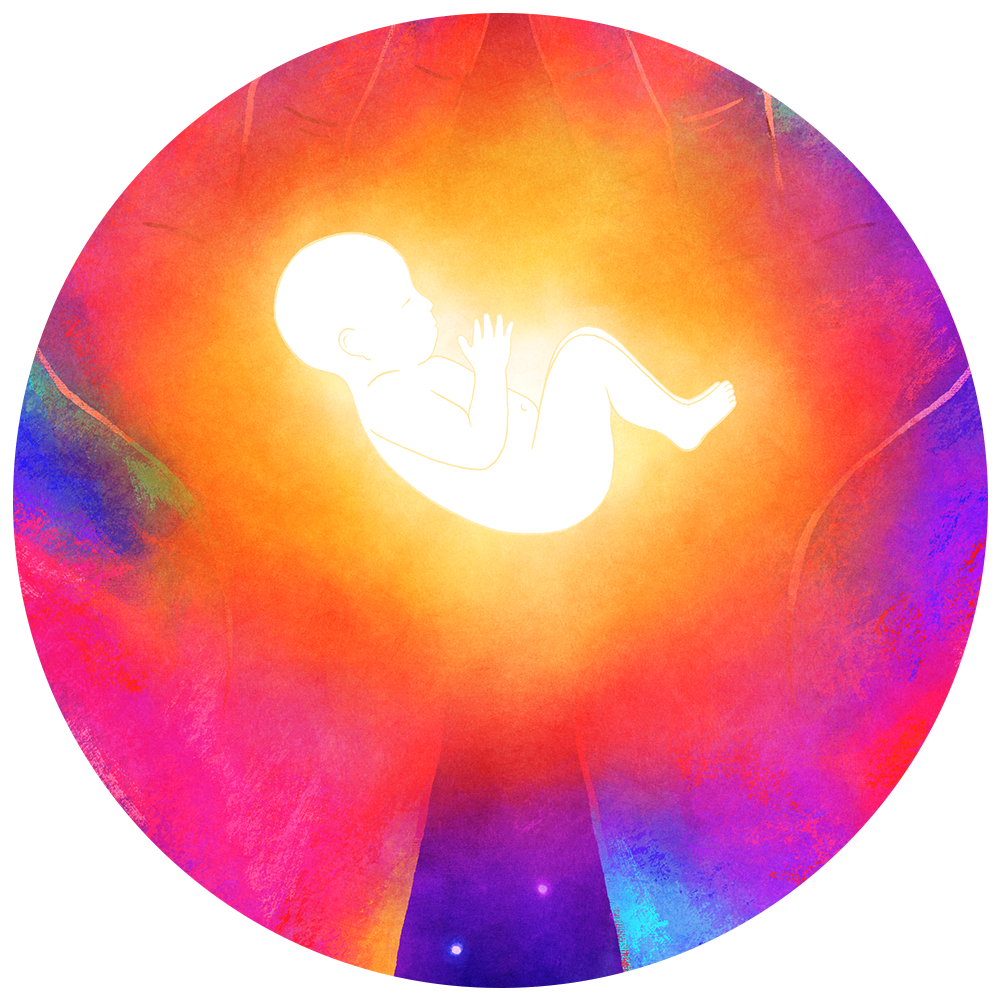 The Father’s Presence
The Father’s Presence
The artistry of our Father God! An artist entirely absorbed, absolutely present. In a world that knows only too well the pain of absent fathers we are comforted by the presence of our caring, nurturing father God. Present in our lives.
These readings might not immediately make us think of an artist, but the aspect of artistry we are focusing on is this sense of deeply and truly knowing the artwork, being entirely present and connected to it — the way God knows each of us and cares so much about us.
SEEDS TO SOW: If you were to close your eyes and imagine God painting a picture — what would you see on the canvass?
Read Matthew 6: 5-8
God notices you
We are not below God’s notice — in our petty grandstanding or in our quiet humility — God sees us. God cares enough to register us with an artist’s eye for composition, to see how the picture is coming together!
Like an artist who has studied the colours and the canvas and the subject — God knows us each so well, our grain, our texture. God does not paint us from a photograph, God has us sit for our portrait — over our whole lifetimes!
Given that God already knows what’s on our hearts, what are the benefits of still speaking our prayers aloud?
Read Matthew 6: 24-34
Be in the moment
As a painter catches a moment in time, slowing us down to notice it — God invites us to take it in — to take it all in! To not rush off to the next picture, the next exhibit, the next anxiety — but to see this precious moment.
How has God used beauty and wonder to teach you about value and worth over your life?
Read Matthew 10: 26-31
Every hair on our head!
For God we are all foreground, we are all in focus, we are all rendered beautifully — we all fall under the loving care of our Father. We are in God’s hands.
Our Father God has an artist’s hands but also an artist’s eye — missing nothing.
Who can we share this message with — of their essential value? Who in our society needs to hear that they matter, that they are precious, that they belong and that they don’t need to be afraid?
Week Five
The Hands of the Trinity: Artistry in Motion
 The Trinity Together
The Trinity Together
We draw our theme to a close with a week on the hands of the Father, Son and Holy Spirit coming together! At the heart of our faith, at the heart of Christianity is the Trinity — God-as-community, God as relationship!
SEEDS TO SOW: How could we use pottery, sewing, gardening, painting or any other hands on craft or skill to learn more about the Trinity this year?
Read Genesis 1: 1-2
In the beginning…
Father and Spirit in motion together. What strikes you about these two verses? What captures your imagination? What questions do you have?
Read John 5: 19-27
Inseparable.
The Father and Son are inseparable, step by step! Just as all three persons of the Trinity are inseparable and love one another. What can we learn about God as our Heavenly Father by considering his relationship with Jesus?
Read Matthew 28: 19-20
Together in Baptism.
Father, Son and Holy Spirit in and through Baptism! In Baptism we see the artistry of the Trinity vividly — how all three come together in this beautiful moment of belonging and beginning of new life.
What can we do to share and explain the wonder of baptism to people who have little or no frame of reference for it?
How can the loving relationship of the Trinity inspire us to inspire others to the heavenly community they can openly join?
And, if you’re not familiar with Baptism, what questions do you have? How can those in the group who know about Baptism give some context for you?




